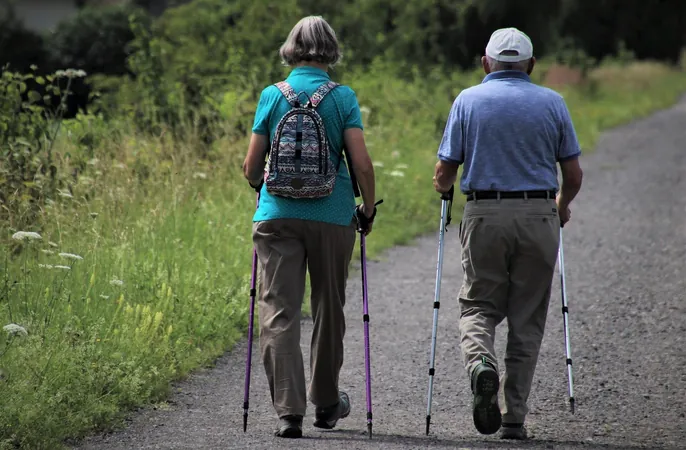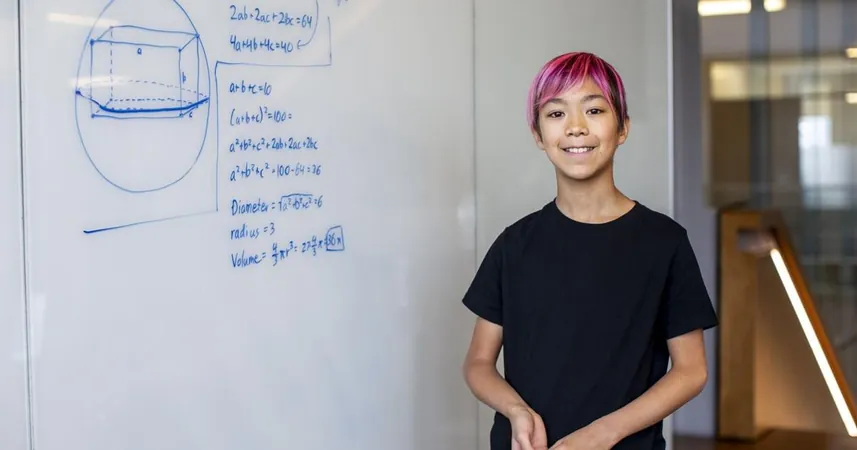
Unlocking the Secret to Sharper Minds: How Staying Active Can Delay Cognitive Decline
2025-06-25
Author: Amelia
The Surprising Connection Between Exercise and Brain Health
We all know that physical activity is crucial for our health, but a groundbreaking study from the University of Georgia reveals that staying active can also be a game-changer for your brain. Published in The Journal of Prevention of Alzheimer's Disease, this research uncovers how exercise can significantly slow cognitive decline in older adults.
New Research Findings That Could Change Your Perspective
Researchers from UGA's College of Public Health analyzed the habits of over 13,000 adults, discovering that those who engaged in regular physical activity experienced a remarkable reduction in the rate of cognitive decline. Lead author Suhang Song emphasizes the transformative power of consistent movement throughout one's life. "Our findings indicate that the longer and more frequently people engage in physical activity, the more they can delay cognitive decline," says Song, an assistant professor in the Department of Health Policy and Management.
Every Little Bit Counts: The Impact of Even Minimal Exercise
What's encouraging is that even minor increases in physical activity can make a difference. The study, which monitored participants aged 50 and older over a span of 16 years through the Health and Retirement Study, categorized activities into various intensities—ranging from vigorous exercises like running to moderate activities like gardening and mild ones like vacuuming.
The research highlighted that just ramping up vigorous physical activities from once a month to once a week can noticeably slow cognitive decline. Even moderate activities that are increased from once a week to several times can have a lasting impact. Song explains, "While the improvements in decline may seem small at first, they accumulate over time, potentially delaying the onset of dementia by years, allowing individuals to enjoy autonomy and a richer quality of life."
A Call to Action: Make Physical Activity a Priority for Brain Health
This study builds upon existing knowledge linking physical activity with cognitive health, but its focus on the consistency and duration of activity is particularly noteworthy. Song advocates for promoting regular physical activity as a vital strategy in reducing dementia risk for older adults. He stresses the importance of support from healthcare providers to help individuals create and maintain long-term physical activity habits by setting realistic goals.
In conclusion, Song's message is crystal clear: increase your movement and keep your activity going. It could be the key to a sharper, healthier mind as you age.









 Brasil (PT)
Brasil (PT)
 Canada (EN)
Canada (EN)
 Chile (ES)
Chile (ES)
 Česko (CS)
Česko (CS)
 대한민국 (KO)
대한민국 (KO)
 España (ES)
España (ES)
 France (FR)
France (FR)
 Hong Kong (EN)
Hong Kong (EN)
 Italia (IT)
Italia (IT)
 日本 (JA)
日本 (JA)
 Magyarország (HU)
Magyarország (HU)
 Norge (NO)
Norge (NO)
 Polska (PL)
Polska (PL)
 Schweiz (DE)
Schweiz (DE)
 Singapore (EN)
Singapore (EN)
 Sverige (SV)
Sverige (SV)
 Suomi (FI)
Suomi (FI)
 Türkiye (TR)
Türkiye (TR)
 الإمارات العربية المتحدة (AR)
الإمارات العربية المتحدة (AR)